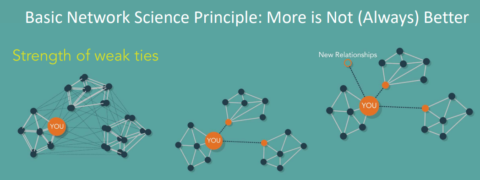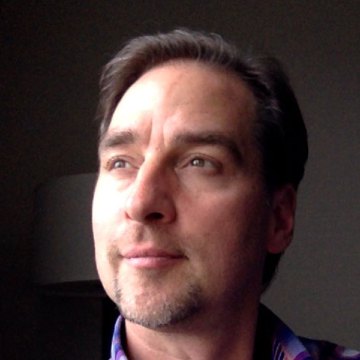I’m fInishing up David Fleming’s book Surviving the Future, and buzzing with ideas and questions about the role of networks, network weaving and energy network science in these times of “systemic release” (see the adaptive cycle below, and more about the cycle here).
Fleming’s book, a curated collection of essays from the heftier Lean Logic, offers some compelling thinking about the trajectory of globalized and national economies – at best de-coupling, de-growth, and regeneration, and at worst catastrophic collapse – and the ways in which intentional and more localized culture building and reclamation as well as capacity conservation, development and management, might steer communities to healthier and more whole places post-market economy.
One of my favorite quotes from Fleming is that large-scale problems do not require large scale solutions; they require small-scale solutions within a large scale framework. That resonated immediately, even if I didn’t know exactly what he meant when I first read it. Re-reading more carefully, I hear Fleming making the argument that to take on systemic breakdown at scale is a fool’s errand – too massive, too slow, too much rigidity to deal with, too much potential conflict, too abstracted from real places and people.
Instead what is required is more nimble small-scale solutions happening iteratively and quickly (relative to how slow things move at larger levels). This suggests that action for resilience must happen at more local and regional levels, connecting diverse players in place, helping to encourage more robust exchanges of all kinds (including multiple “currencies”) and culture building. David Fleming offers the following definition of the lean economy (as opposed to the taut perpetual growth economy): “an economy held together by richly-developed social capital and culture, and organized around the rediscovery of community.” How might we weave that fabric even as others unravel?
Lean (network) weaving (a new term?) would focus on helping to create more intricate, high quality/high trust and diverse connections as well as facilitating robust, nourishing flows in tighter and more grounded cycles and systems. Part of the lean weaving would entail ensuring that smaller systems remain alert, quick and flexible so as to experiment, learn and adapt. And it would also maintain connection and communication between these smaller systems/clusters (Fleming’s “larger framework”), to facilitate learning and feedback of various kinds between them (not unlike proposed bioregional learning centers).
“The more flexible the sub-systems, the longer the expected life of the system as a whole.”
David Fleming

This idea of “lean weaving” also brings to mind the wisdom of network science as taught by Danielle Varda and colleagues at Visible Networks Lab. They make the point that when it comes to creating strong (resilient and regenerative) networks, more can be less in terms of the connections we have. Connectivity, like so much else in our mainstream economy and culture, can be ruled by a relentless growth imperative that is not strategic or sustainable and can cheat us of quality in favor of quantity.
More connections require more energy to manage, meaning there may ultimately be fewer substantive ties if we are spread too thin. Instead, the invitation is to think about how we mindfully maintain a certain number of manageable and enriching strong and weak ties, and think in terms of “structural holes.” For more on this network science view, visit this VNL blog post “We want to let you in on a network science secret – better networking is less networking.”
The COVID19 pandemic along with other mounting challenges may already be presenting the mandate and opportunity to get more keen and lean in our network thinking and weaving, not simply in the spirit of austerity and regression, but to cut an evolutionary path of resilience and regeneration (renewal). Network weavers of all kinds, what are you seeing and doing in this respect?
Originally published at Interaction Institute for Social Change
Curtis Ogden is a Senior Associate at the Interaction Institute for Social Change (IISC). Much of his work entails consulting with multi-stakeholder networks to strengthen and transform food, education, public health, and economic systems at local, state, regional, and national levels. He has worked with networks to launch and evolve through various stages of development.


